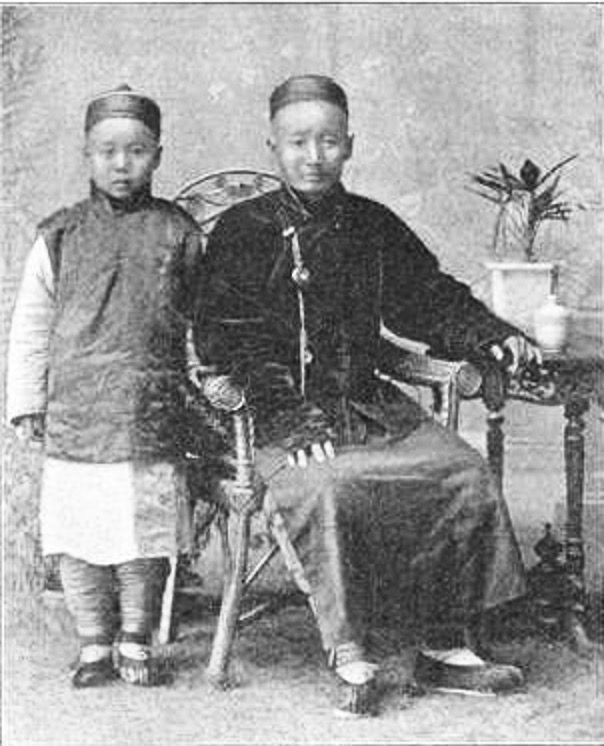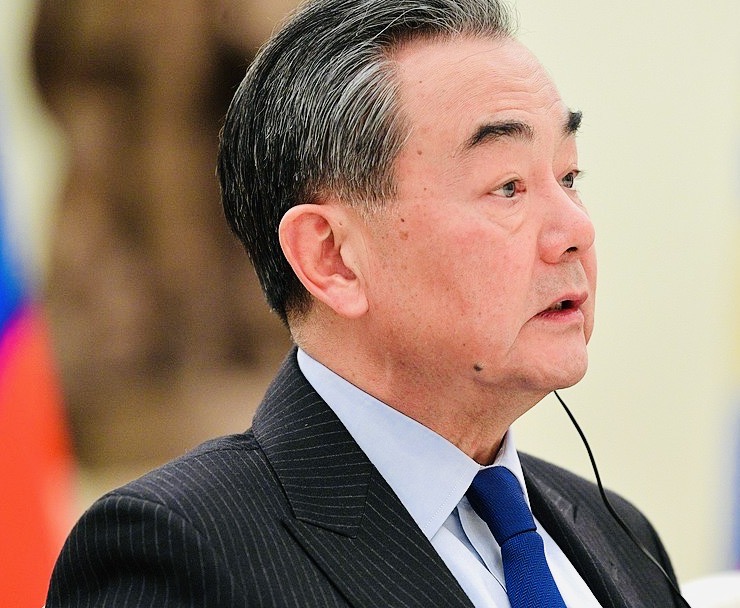Israelis were shocked by the ease with which Hamas terrorists broke past Israel’s high-tech billion dollar border fence along the Gaza Strip on October 7. They should also have been surprised by a related event — the appearance of antisemitic rhetoric on Chinese social and state media from that date forward.
This pernicious phenomenon caught the attention of Deborah Lipstadt, the U.S. State Department’s envoy charged with monitoring and combating antisemitism. As she tweeted, “I am deeply concerned by the spread of antisemitic tropes and conspiracy theories in recent weeks, including the uptick on the largest social media platforms in the People’s Republic of China. This dramatic increase in antisemitic rhetoric is a cause for alarm.”
The German embassy in Beijing agreed: “We believe in the power of free speech and rational debate … But all this is not without limitations. Invective that is degrading to human dignity will be deleted. We also want to make it clear that those who deliberately combine the Israeli flag with Nazi symbols in their profile pictures are either ignorant idiots or shameless bastards! Such accounts will be permanently blocked by us.”
Call me native, but I was also taken aback by this development, having never associated China with animosity toward Jews. Historically, the Chinese state always stood far apart from European Christian countries that belittled, hounded, marginalized and persecuted Jews.

Since time immemorial, the Chinese people have never had a “Jewish problem” due to the dearth of Jews in China. Several hundred years ago, Jewish merchants from Persia and Afghanistan settled in the city of Kaifeng, where they prospered and melted into the local Han population through an incremental process of assimilation.

During World War II, thousands of German, Austrian, Czech and Polish Jews fleeing persecution found a safe haven in Japanese-occupied Shanghai.
In short, China has never been burdened by a history of state-sponsored or grassroots antisemitism. And in general, the Chinese people have adopted benevolent attitudes toward Jews, though some, admittedly, have fallen back on stereotypes to describe Jews, as I learned during reporting trips to China in the early 2000s.
Which begs a question: What accounts for the current explosion of antisemitism in pockets of the Chinese internet and in official publications?
Israel is the United States’ closest ally in the Middle East, and since the relationship between the U.S. and China has soured in the past few years, Israel is invariably seen by the Chinese as an American surrogate. Hence the vitriol directed against Jews within a small minority of China’s population.
This animus was observed by the Anti-Defamation League in 2014. According to its survey, roughly 20 percent of Chinese people hold a negative attitude toward Jews.
During the anti-government protests that rocked Hong Kong in 2019 and 2020, the state-owned newspaper Ta Kung Pao published antisemitic conspiracy theories concerning the American financier George Soros.
And in 2021, during the fourth Gaza war, Israel’s embassy in Beijing accused China Global Television Network of “blatant antisemitism” when it broadcast a program in which the host, Zheng Junfeng, claimed that Jews were in control of global finances and used its lobby to win U.S. support for Israel.
In the same year, Chinese influencer Lu Kewen, in a WeChat post, copied and pasted passages from The Protocols of the Elders of Zion and Adolf Hitler’s Mein Kampf.
Since October 7, a minority of Chinese bloggers have posted a profusion of anti-Israel and antisemitic comments on Weibo message boards and video platforms.
A few examples:

A harrowing video showing Hamas terrorists kidnapping Noa Argamani, a woman of Chinese-Israeli descent, elicited nearly 2,000 “likes.” The second most liked comment likened Israeli soldiers to “Nazis” and “killing machines.”
Jin Canrong, a professor of international relations with 2.7 million followers on Weibo, wrote, “Israel right now is crazed with killing … Hitler truly knew the Jews.”

On October 10, the Chinese state broadcaster, China Central Television, alleged that American Jews, representing less than three percent of the U.S. population, “control 70 percent of its wealth.”
When the Chinese Foreign Ministry was asked about these antisemitic posts, spokesperson Wang Wenbin offered a bland reply: “China’s laws unequivocally prohibit disseminating information on extremism, ethnic hatred, discrimination and violence via the internet.”
What was left unsaid is that the monolithic Chinese government, which controls everything in China, allowed these posts to be disseminated in the first place.
It is also conceivable that Chinese bloggers posted antisemitic posts out of anger at Israel’s special military operation in Gaza.
China and Israel formally established diplomatic relations in 1992 after a long period of Chinese ideological hostility toward the Jewish state.
The Republic of China, in 1949, recognized Israel on a de jure basis. But in the wake of the Chinese civil war and the formation of the communist People’s Republic of China, Israel was scorned as a Western colonial settler state.
The new Chinese regime shunned Israel despite Israel having been the first country in the Middle East to recognize it as the sole government in China, and cultivated friendly relations with the Palestinians and the PLO.
For the past 21 years, Israel and China have established strong economic ties, and today China is Israel’s second largest trading partner after the United States. Five months ago, Prime Minister Benjamin Netanyahu announced he would visit China by the end of this year.
Prior to the outbreak of the current war, China denounced the expansion of Israeli settlements in the West Bank and called for a two-state solution.
Since October 7, China has neither condemned Hamas’ attack nor labelled Hamas as a terrorist organization. After the Israeli Air Force launched a bombing campaign in Gaza to degrade/destroy Hamas, Chinese Foreign Minister Wang Yi claimed that Israel had gone “beyond self-defence.”

China has since called for an immediate ceasefire, which Israel and its chief ally, the United States, categorically reject as long as Israel’s hostages remain in captivity.
Yesterday, the foreign minister of China celebrated its cordial ties with the Arab world. “China is a good friend and brother of Arab and Islamic countries,” he said. “We have always firmly safeguarded the legitimate rights and interests of Arab (and) Islamic countries and have always firmly supported the just cause of the Palestinian people.”
China’s embrace of Arabs and Palestinians has paid dividends. Arab League nations rarely, if ever, complain about China’s mistreatment of Uyghur Muslims in the western province of Xinjiang. And last June, during a state visit to Beijing, Palestinian Authority President Mahmoud Abbas claimed that China’s actions in Xinjiang are designed to combat terrorism and have “nothing to do with human rights” abuses.
Abbas’ willingness to turn a blind eye to this glaring problem is a measure of the importance of Realpolitik in international politics.
